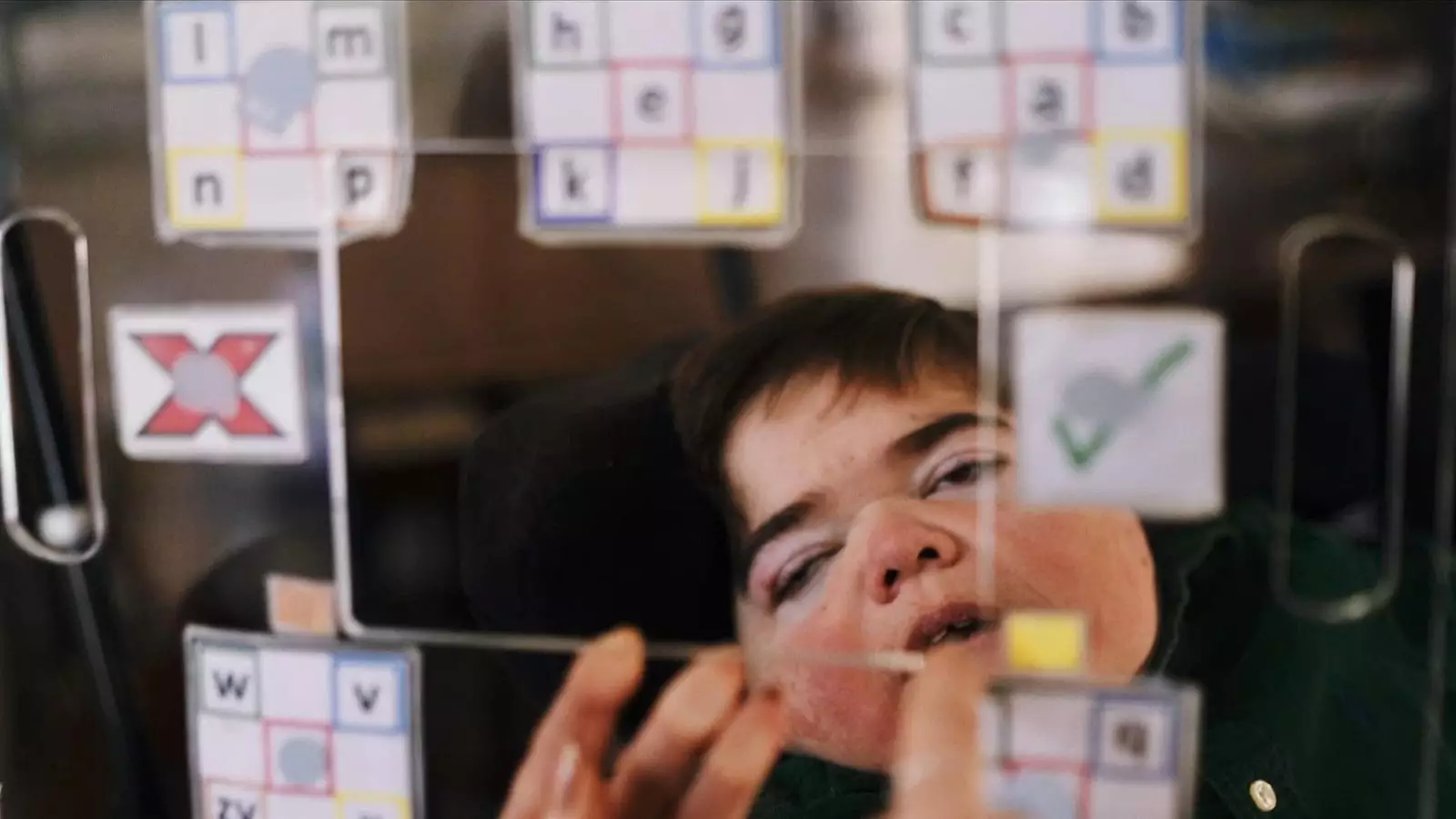In a society that often prizes articulate speech and traditional educational markers, the narratives surrounding children with profound and multiple learning disabilities (PMLD) remain shrouded in misconception. Jonathan Bryan, a remarkably resilient teenager grappling with severe cerebral palsy, accentuates this reality with his powerful story. After years of struggling under simplistic educational labels, Bryan emerged not only as a voice for those often overlooked but also as a testament to the profound abilities that lurk beneath the surface of non-verbal communication.
Despite being categorized under a label meant to define his supposed limitations, Bryan refused to be confined by the academic rigidity it implied. When he began school, the sensory curriculum he was placed into was hardly reflective of his cognitive abilities. Instead of accepting the assumption that he, like others in his condition, could not learn, his mother’s determination unlocked the door to his intellectual potential. Using an alphabet board, they forged a new path that transformed Bryan from a mute bystander in his own life into a published author.
The Dangers of Assumptions in Education
Bryan’s insight into the school system reveals a pervasive issue: children diagnosed with PMLD often become victims of a self-fulfilling prophecy. The irony is that when educators fail to challenge preconceived notions, they inadvertently contribute to the very stagnation they seek to avoid. Bryan articulately points out that the lack of rigorous assessment of cognition before assigning such labels leads to an educational environment where creativity, literacy, and learning are often stifled.
It is disheartening yet revealing that the educational infrastructure has not adequately equipped itself to pivot away from dated notions. As Bryan poignantly noted in interviews, non-verbal communication does not equate to a lack of intellectual capability. The presumption that all individuals who communicate differently are, therefore, devoid of thoughts or ideas is a societal failure ingrained in systems that are resistant to change. Instead of nurturing potential, such attitudes perpetuate neglect, further alienating those who already occupy the margins of society.
The Power of Advocacy and Individual Agency
Bryan’s metamorphosis into an advocate is another critical layer of his story. With ten years of campaigning behind him, he consistently emphasizes the need for systemic change while simultaneously calling on educators and individuals to raise their expectations for students with PMLD. His journey offers a dual narrative of personal agency and responsibility: while systemic change is vital, individual advocacy from within the education system is crucial to effecting real change.
“Please don’t underestimate your pupils,” Bryan implores teachers, a message that resonates well beyond the confines of his experience. This sentiment should serve as a rallying cry for committed educators to embrace their roles as champions of potential, recognizing that communication, whether verbal or non-verbal, can hold untold depths of understanding, logic, and creativity.
Challenges Ahead for Inclusive Education
Despite Bryan’s hard-fought victories, he underscores the reality that considerable obstacles still lie ahead in achieving an equitable educational landscape for those with complex needs. The systemic inertia observed in the Department of Education’s approach is indicative of larger societal issues. While they may express their commitment through strategic plans, real transformation occurs in classrooms, where teachers can directly uplift their students’ capabilities and aspirations.
Efforts must focus on creating an environment where literacy is a right afforded to all—regardless of communicative ability. The responsibility lies as much with educational policymakers as with educators themselves. The urgent need to debunk myths surrounding non-verbal learners must drive a reformative approach that prioritizes personalized education and removes standard barriers to learning.
In a world that often turns a blind eye to those who communicate differently, Jonathan Bryan stands as a powerful reminder that intellect is not defined by our ability to verbalize thoughts, but rather by our capacity to think, to dream, and to communicate those ideas in diverse forms. His journey serves as a beacon of hope for countless others, urging society to look beyond the surface and recognize the depths of potential that exist in every individual, regardless of their challenges.


Leave a Reply